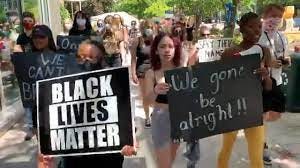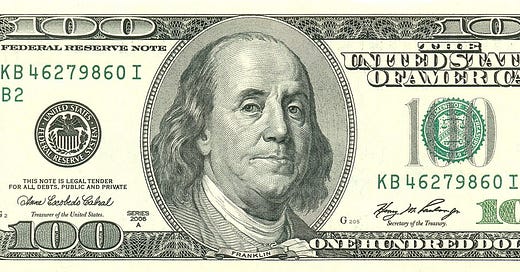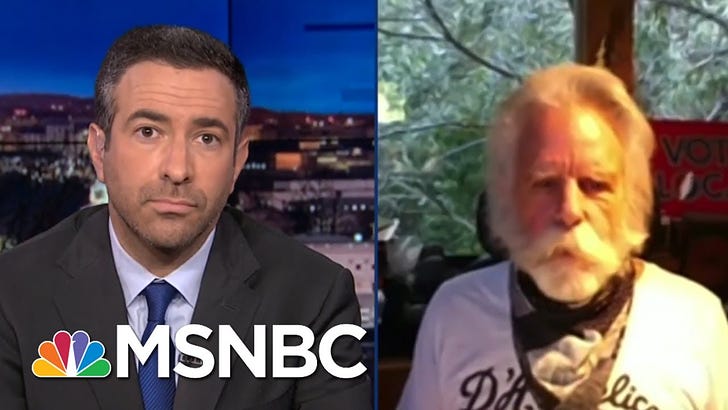Hi!
This is Ari, with a new entry of my newsletter for you below. There’s been plenty happening in the news, as you surely know. Today, I’m stepping back to dive into broader themes of justice, politics and culture in the piece below.
And thanks for your interest as always! You can subscribe for all newsletter editions here:
Alright
Are we going to be alright?
That’s a pretty deep question, and feeling, for anyone going through something. I certainly don’t pretend to have a firm answer for everyone, today. In conversations about personal hardship, it’s common for people to say “things will get better.” (And many things do improve over time, I’m generally an optimist!)
What if, however, you live in an environment where life feels like a long series of injustices, setbacks and suffering?
In “The Color Purple,” author Alice Walker explores that kind of adversity. Does it break a person, or can it make them stronger?
In a now-famous passage, Sofia, a Black woman facing deep racism in society, and male violence at home, reflects on it all — while still expressing her resolve:
“All my life I had to fight. I had to fight my Daddy. I had to fight my brothers.
I had to fight my cousins, and my uncles. A girl child ain't safe in a family of men. But I never thought I'd have to fight in my own house…
Those blunt, clear sentences became iconic — probably because they resonated with so many people. The lines spread first from the novel, then in the popular film adaptation (starring Oprah), and more recently, in a song that became a major protest anthem.
All’s my life
Compton artist Kendrick Lamar is the first rapper to win the Pulitzer. He drew on Walker’s work for his 2015 song, “Alright,” which begins with by applying Walker’s words to current experiences, through Lamar’s own voice and vernacular:
All’s my life, I has to fight, [redacted]
All’s my life, I— hard times like, "yah!" / bad trips like, "yah!"
Nazareth…
But if God got us, then we gon' be alright!…
This song is a celebrated track his acclaimed album, To Pimp a Butterfly, which helped establish Lamar as one of the most gifted, and serious, rappers of his generation. The album cover mixes the look and “street aesthetic” of Lamar’s hometown of Compton, superimposed in front of the White House, a style Lamar has also explored in videos drawing on civil rights photographs by Gordon Parks.
Lamar invokes artistic and political history here to write his own.
Some listeners will recognize Walker’s lines as a quote, just as some listeners remember an Isley Brothers hook when it’s sampled in a rap song. Other listeners, especially younger ones, may be learning these lines for the first time, with Lamar as the “source.” In that sense, he is a knowledgeable (and self-aware) gateway — versed in Compton’s history as the foundation of militant political hip hop, including N.W.A.’s criticism of police brutality, long before mainstream America acknowledged it.
So “Alright” begins with the relatable experience and pain of constant fighting: communities under attack, people swimming upstream; a society where workers are sorted and exploited.
Lamar raps that when he wakes up, he recognizes America is “looking at me for the pay cut” — so music is a commodity with the largest cut of profits for corporations — but “homicide be looking at you from the face down” — referencing the killings that leave people face down in the street. Lamar knows outsiders view him, and his value, as just an economic product, while their heads are in the sand about the realities of violence and police killings.
Lamar continues by challenging stereotypes that exist both about and within some Black communities:
Let me tell you about my life:
Painkillers only put me in the twilight
Where [redacted] and Benjamins is the highlight?
Some music discusses and glorifies drugs. Here, Lamar scoffs at the idea that drugs could really serve him or his life. Pills to dull the pain only take him into a darker twilight, while he rejects the “womanizing” lifestyle and materialism — the ‘Benjamins’ on Hundred Dollar Bills — as a worthwhile “highlight” of anything.
There are many searing lines, along those lines, but musically, it is the chorus and refrain that upends the somber themes:
We gon’ be alright /
Do you hear me, do you feel me ?!
We gon’ be alright !!
Against the backdrop of Lamar’s poetry, the chorus does not land as ‘denial,’ or some kind of ‘happy talk.’ In the same spirit as Alice Walker’s meditation on adversity, the chorus rises up as a kind of audacious vow — we are going to be alright; do you hear, do you feel, do you understand? It’s truly bracing when you hear it.
A Protest Anthem for Protests
“Anthem” is an admittedly overused term in music.
It was actual protesters, however — thousands of Black Lives Matter protesters — who collectively made “Alright” their protest anthem during the surge in activism in 2020.
They played it at rallies. They carried signs with Lamar’s words (just as previous generations hoisted signs quoting Sam Cooke and Bob Dylan).

If you attended or watched those marches and rallies, you probably heard the song. If you’re a Kendrick Lamar fan, it was extraordinary to see his work — so rooted in Black history and civic activism — come into its own with a second life in the streets, five years after it debuted.
Now, we could insert [themes of life imitating art] here… or note the many accounts of the song’s influence at the time, with headlines like:
How “Alright” Became an Anthem for BLM Protests
How Kendrick Lamar’s “Alright” Became a Rallying Cry for the Black Lives Matter Movement
‘This Is America’ and ‘Alright’ See Massive Spotify Gains Amid George Floyd Protests (Forbes)
The point here, however, is even deeper than that reception.
Lamar’s poetry resonated with so many real people, and protesters, along the same lines that Walker’s words resonated with him — as a truth about a collective experience, coupled with the determination to decide how to respond and overcome.
That is more than protest. It’s power.
Go Deeper…
Here’s Alice Walker hearing Kendrick quoting her for the first time, and responding:
“He’s understanding that is the truth of it, especially for poor people and people of color… it’s a good thing we can talk to each other across generations.”
I occasionally do these deeper dives on music and protest anthems, as I’ve mentioned in previous newsletters… like last time, I wrote about Public Enemy’s “Fight the Power.” So, what other protest and political music is meaningful to you, or that you might like me to write about?
Tell me in the comments:
You can become a full subscriber to join our annual Zoom call here:
P.S. And for even more essays… here are some of my past music pieces that may interest you:
Masters of War
War As Russia attacks Ukraine, and people are forced to choose between fighting and fleeing, and Europe eyes the largest land war since 1944, it can feel like a time where words fail, and there’s very little to really add. Vladimir Putin’s unprovoked attack is just that — power and force wielded against the less powerful, with very few good options in or outside of Ukraine (unless the rest of the world is ready for a military clash with a nuclear power).
Bob Weir says Jerry Garcia still visits him
Here’s one of my more casual posts — often on culture, music or just random musings. Subscribe here to get my newsletter:









Are we going to be alright? I have to believe we will be, without hope what is left? Without fighting for what is right then what is left? When we answer no we will not be alright then what is left? I believe in “ keep on keeping on” then we will be alright. Never stop fighting for what is right then we will be alright. 🤗 We will prevail
Hey Ari:) I always enjoy your deep dives into music and so appreciate your perspectives and analysis. I can’t remember a time in my family, for generations, that we have not embraced and continue to reach for love, appreciation and joy, no matter what. You feel your feelings genuinely, you deal with what you must, and then you find your way back to appreciating things again, as difficult as that journey can be sometimes. It’s ingrained in my culture, black culture, to overcome adversity with faith in something bigger than ourselves. Whether it be religious or spiritual. There is just a sheer determination, and you have a definite knowing that you’re blessed, no matter what things look like right now, and “everything is gonna be alright.” Turning adversity into strength is a powerful tool that many people in my family, and our culture have deeply mastered, and they connect this to a deep faith. The mantra for me has always been: Don’t let anyone or anything take your joy! There’s always something to appreciate, right here and now, but you have to look for it, if you wanna see it.
Favorite Protest song: Sam Cooke, A Change Is Gonna Come. 🎶❤️